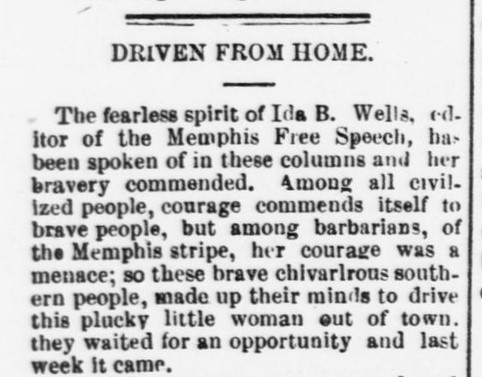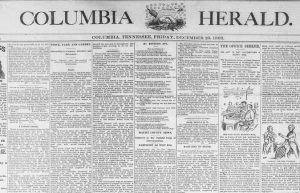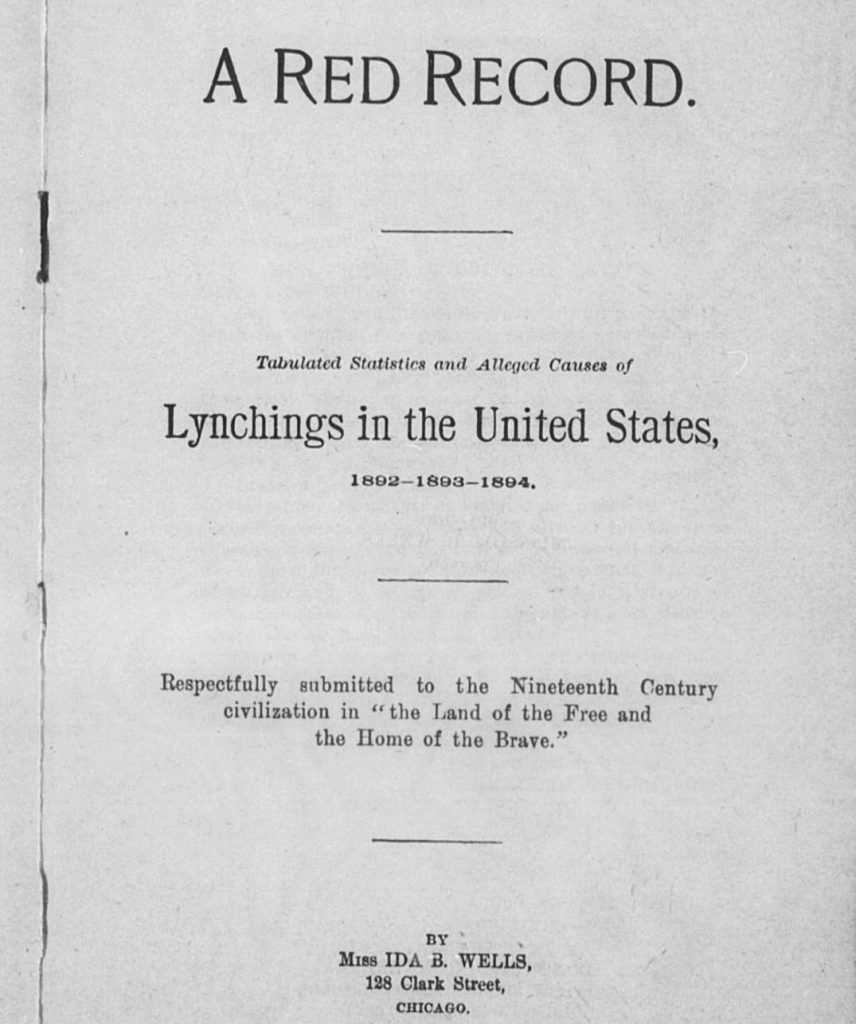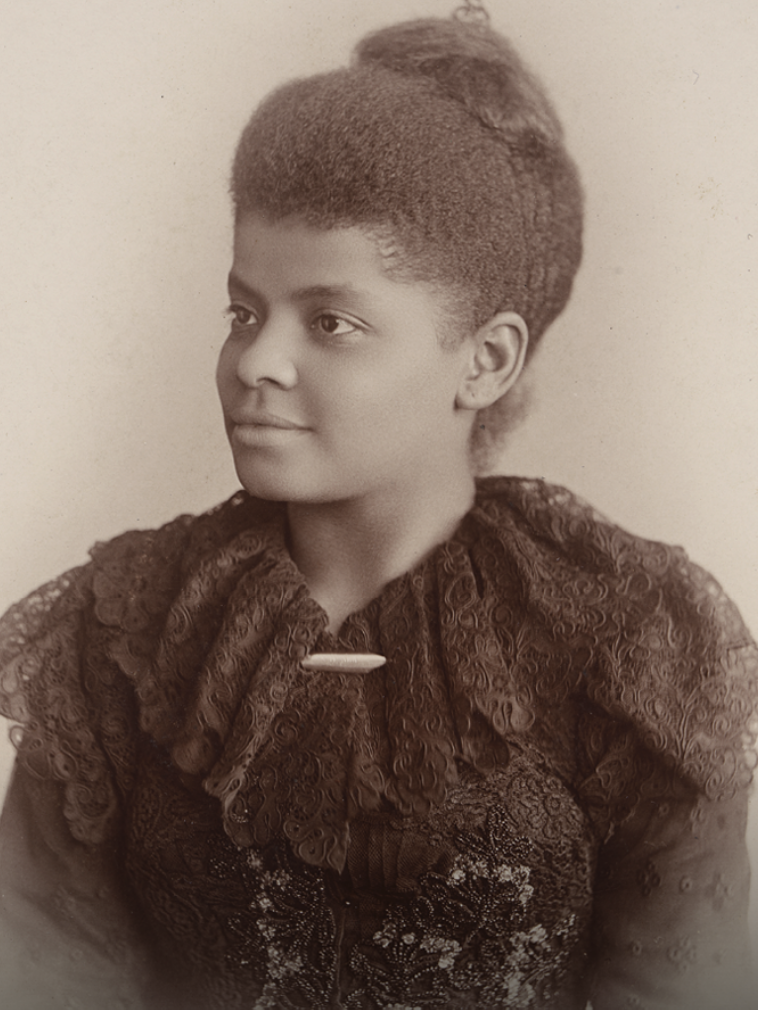We started Black History Month with the great Rosa Parks from Alabama and we’re winding it up today with the great Ida B. Wells from Mississippi. This is a guest post from Malea Walker, a reference librarian in the Serial and Government Publications Division, who first posted in on the Headlines and Heroes Blog. Wells’ motto, “Truth is mighty and will prevail,” is still reflected in the work of investigative journalists today, including, of course, the Ida B. Wells Society for Investigative Reporting.
Ida B. Wells-Barnett. Photo: Sallie E. Garrity. National Portrait Gallery, Smithsonian Institution.
In a time of extreme racism and yellow journalism, documenting and speaking the truth about lynchings in the South was a rare and dangerous act. But that did not stop journalist Ida B. Wells-Barnett. When one of her friends was lynched in Memphis in 1892, she decided she could not let the defamation and murder of African American men stand any longer.
For months, Wells — she married in 1895, after she had begun her activism and publishing career, and added her husband’s surname to hers then — traveled throughout the South investigating lynchings. She used eyewitness interviews, testimony from families, and looked through records. The New York Times in its recent obituary for Wells noted, “She pioneered reporting techniques that remain central tenets of modern journalism.”
What she found was that the stereotype of black men being lynched for raping white women was almost always false. Disputes usually started over completely unrelated things, as it had with her friend Thomas Moss, killed over a dispute that began with children playing marbles. She boldly reported her findings in an editorial in the newspaper that she co-owned and edited, The Memphis Free Press and Headlight. That editorial, however, caused a riot in Memphis and she was forced to leave her home to save her life. The office of the newspaper was destroyed.

“Driven from Home.” The Washington Bee (Washington, DC), June 11, 1892.
This did not stop Wells from continuing to speak out and write about lynching in the South, however. Instead she made it her mission to continue reporting on her findings, and to bring facts forward to combat the racist lies that covered up the violence that she found. As The Appeal (Saint Paul, MN) wrote months later, by leaving Memphis and going to New York, she began to reach thousands more people. “Free Speech,” they noted, “is not so easily suppressed as The Free Speech.”
Wells continued to face danger and opposition as she began telling her story across the country. An article from the Memphis Commercial as republished in The Columbia Herald, below, shows the depth of loathing that she faced. The language in the article (in the second column) is unpleasant to read — the author refers to Wells as a “wench” who writes “obscene filth” — but it is being presented here as a historical example of what Wells faced.

“A Colored Corday.” The Columbia Herald (Columbia, TN), December 23, 1892.
Wells continued her reporting, though, writing for The New York Age, the Chicago Daily Inter-Ocean, The Conservator, and many other newspapers. She published the pamphlet “Southern Horrors” later in 1892, working off of what she had written for the Age and providing additional details. She then traveled across Europe, gaining support there for her anti-lynching mission. Her success in Europe emboldened her efforts once she returned to the United States and continued lecturing and writing.
In early 1895 she published her book, “A Red Record.” Again using her investigative reporting, “Record” was longer than “Southern Horrors” and included updated statistics, specific details, and photographs of cases of lynching across the South.

“A Red Record.” Ida B. Wells (Chicago, 1895).
Wells continued to be an activist throughout her career. She started a number of clubs and organizations including the Ida B. Wells Women’s Club and Alpha Suffrage Club, the first suffrage club for black women. She helped in the founding of the National Association for the Advancement of Colored People (NAACP). In 1930 she even ran for a seat in the Illinois State Senate. She never stopped speaking the truth that she saw—the truth that she found through facts and figures. Her papers are at the University of Chicago. She died March 21, 1931.















